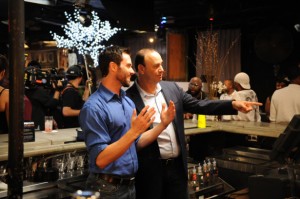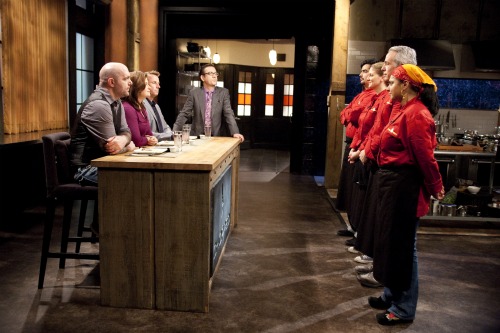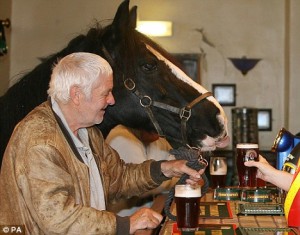home page
my blog posts
What Reality Shows Need Is a Little Less Fiction (and a Little More Fiction)

 I suspect that if you mentioned my name to anyone I worked with in 2000, their dominant memory of me would probably be that I was obsessed by the first season of the reality TV show Survivor. Completely hooked. I hosted a finale party at my house. Nine people showed up, none of which had ever seen a single episode.
I suspect that if you mentioned my name to anyone I worked with in 2000, their dominant memory of me would probably be that I was obsessed by the first season of the reality TV show Survivor. Completely hooked. I hosted a finale party at my house. Nine people showed up, none of which had ever seen a single episode.
Half way into Season Two, I managed to get my brain around the fact that I was being manipulated. Manipulated by the editing. By the manufactured drama. By people acting out so they could launch off the editing room floor and make the final cut of the broadcast.
Bleah. I turned on Reality TV that fast. Little did I know how long the genre would continue to reign.
I’ve never seen an episode of: American Idol, Duck Dynasty, Amazing Race, or Big Brother. Yes, everyone I know is trying to convince me that I want to watch Duck Dynasty.
I admit that I have watched Pawn Stars, American Pickers, and Storage Wars. I’ve cringed through several episodes of Hoarders because my wife is fascinated.
There are two reality shows on my DVR that haven’t yet exhausted my patience: Chopped (Food Network) and Bar Rescue (Spike TV).
I admit that watching a cooking competition (Chopped) on television makes about as much sense as listening to a ventriloquism act on the radio. “Boy, honey, that veal sure looks purdy, dudn’t it? Awww! No! That one judge with the douchebag eyewear says it’s dry!”
Bar Rescue suffers from many of the tropes of reality television I mentioned above, mainly people acting out for the cameras. One of my Father-in-Laws has been toying with the possibility of buying a bar or small restaurant. Cramming in episodes of Bar Rescue originally was my way to learn about the pitfalls of the industry. I might just be pressed into service behind a bar one day. Instead, Bar Rescue scared the hell out of me. What scares me is not how hard of a job it is to run a successful bar. The scary part is how long many of the bar owners on the show have skated along, not working very hard at all. Apparently, if an establishment has bar stools, you can ride a dying horse for a long, long time before the bank comes to lock the door.
In the episode we watched last night, the alcoholic bar owners were $900,000 in debt with a date set for bankruptcy court. $900K! How? How do you get almost a million bucks in the red without going into receivership? How can you not be on a cash-only basis with your vendors at that point? Wow!

Each episode of Bar Rescue begins with turnaround specialist Jon Taffer watching “hidden camera video” of the bar owners acting like irresponsible assholes. This was always a big turn off for me. Of course the “hidden cameras” weren’t really hidden. Of course the bar owners were acting out for the cameras.
Mmmm. Maybe not. Not so fast. Apparently the producers come in, set up the “hidden cameras” and feed the bar owner a line of bull that there are three bars in the area that are being considered for the show. They are setting up remote cameras in three places and their bar is probably not the one that will get the rescue.
Or perhaps this subterfuge merely turns the crazy factor up to eleven in a last ditch attempt to get the attention of the Bar Rescue team.
The coda, the payoff of Bar Rescue is not the big reveal of the remodeled restaurant, it’s not the “Move that truck!” moment. It’s not the tearful deconstruction of Jon Taffer and the bar owners hugging it out after their first night with their transformed business.
The emotional payoff is the four-second flash of postscript graphics that goes up before the credits roll.
“Three weeks later, NewBarName is still in business and reports a 30% increase in sales.”
“Three weeks later, NewBarName has reverted back to their old management style and Bob the Owner was arrested for check fraud.”
Or, my favorite: “NewBarName has closed down since Jon’s visit. The owner expressed his belief that the overhaul was a mistake, then closed the bar two days after its relaunch.” Grand. Just grand.
Essentially, you can skip the entire show and watch those four seconds of epilogue. You’d know if the characters you could meet by watching the show were worth 34 non-commercial minutes of your emotional investment.
Not that Jon Taffer and the turnaround team are always right. Several of the bars reverted to their old brand identity and menu and their sales improved. There are plenty of these deconstructions to be found on the interwebs. Even I can see that some remodel-and-renames are duds at the big reveal.
But I watch. I watch to get to the true reveal, those four seconds of postscript at the end.
I watch because:
A. I believe that four-second postscript is going to tell me the truth about what came next after the production wrapped.
B. There’s a balanced chance that the postscript fate of the bar will either tilt positive or negative.
C. I ‘m always certain I know which bar owners are/are not going to make it, and I’m frequently wrong.
D. Unlike Gordon Ramsey restaurant rescue shows, I believe Taffer actually gives a shit about his turnaround. I believe Taffer takes success and failure personally.
This particular reality show works for me because it follows the rules of the very best fiction writing:
A. I care about the fate of the protagonists.
B. There’s a reasonable uncertainty about whether or not the protagonists will succeed.
C. Clues are planted. Inferences are drawn. And yet I don’t see the ending from page twelve.
D. I believe the author cares about the characters.
Doesn’t D sound silly? Of course the author cares about the characters!
Ehn. Not always. I believe Dean Koontz used to care about Odd Thomas. Maybe through the second book. Now he’s slogging through a franchise that bores him. I wrote a vampire book that bored the shit out of me as I was writing and it shows. You can tell. If Patty Cornwell never again typed the letters “Kay Scarpetta,” it would be too soon for her. She’s sleepwalking that cash cow and fooling no one.
Really, aren’t Bond and Bourne kind of a snooze after three books? (B & C)
And the ultimate compliment from a reader: “I finished the novel and I want to know what the protagonist does next.” (A). The best way for a writer to achieve that compliment is to resist the urge to tie every single plot thread up with a bow and pave a happily-ever after for the entire cast of Tier II and Tier III characters.
I’m not advocating Sopranos-quality, Lady and the Tiger ambiguity. But leave the characters a space to exist and grow that is extradimensional to the back cover.
The best fiction is anchored in reality and the best reality is anchored in fiction.



1 comment
Angela
I really liked Restaurant Stakeout. Not sure if it’s still on, but it’s similar to Bar Rescue, so I think you might like it.